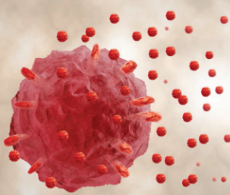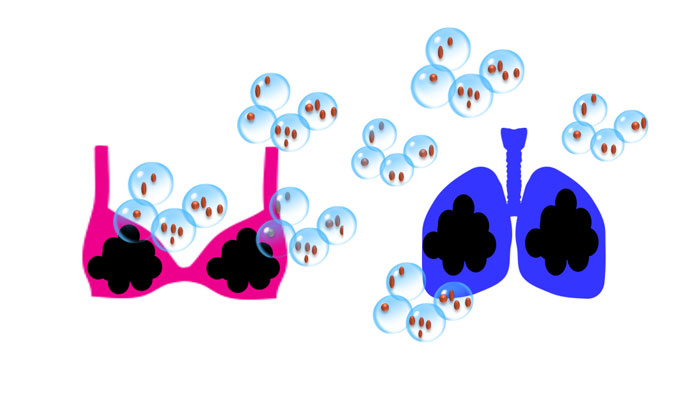Blogger: Jimita Toraskar, Ph.D candidate at the Department of Cancer Research and
Molecular Medicine and a participant in Researchers Grand Prix 2016 and Tonje Strømmen Steigedal, researcher at the Department of Cancer Research and Molecular Medicine.
If you know the enemy and know yourself, you need not fear the result of hundred battles.
Sun Tzu
Breast cancer is that enemy, and we still don’t know everything about it. Every type of cancer is different and each breast cancer patient is unique. We all are haunted by one big question, ‘Have we solved the cancer problem’? But first, shall we take a moment to know our enemy better?
What is the problem?
People are normally made up of about 4 trillion tiny cells.
For many years we believed that cancer starts with a single cell in our body randomly multiplying to form a group of cancer cells which is called a tumour. Some types of cancer therapeutics fail if cells from the tumour have already started to spread (metastasize). Different types of cancer cells preferentially colonize and metastasize to specific organs. Breast cancer cells prefer to metastasize to lungs, bones, liver and brain.
Where is the problem?
Invading different organs has never been an easy job for cancer cells.
When breast cancer metastasizes to lungs, many of us would think it is lung cancer. But it’s not. It is actually breast cancer cells growing in lungs. So how does breast cancer cells change the environment of lungs to suit their own survival? Long before the cancer cells leave the boundary of the breast, they start to communicate with different organs and prepare them for their arrival. Cancer cells sometimes release many tiny bubbles which travel in your body and may settle down in specific organs to prepare the field for the cancer cells to come and play. In the field of research, we call these little bubbles- ‘Exosomes’ and increasing attention has lately been faced towards this topic in order to find new and more efficient ways to treat metastatic cancers.
Why is it a big problem?
Normal healthy cells also release exosomes to communicate with each other.
But unlike normal cells, cancer cells are capable of releasing very powerful exosomes packed with lots of different proteins and genetic material facilitating their spread to preferred organs. The content of the exosomes will influence the target organ of the metastasizing tumour. The number and content of exosomes varies between cancer types, and aggressive tumours with high risk of metastasizing typically secrete high numbers of exosomes. This ability of cancer cells to use exosomes to manipulate the environment outside the tumour, eventually makes it more challenging to treat.
How can we solve the problem?
Key to solve a complex disease like cancer lies in targeting its mechanism at the molecular level.
In our lab, we are aiming to understand the mechanisms for how breast cancer cells utilize exosomes to facilitate metastasis. We isolate and characterize exosomes from different breast cancer models. We have identified specific proteins in the exosomes which significantly influence the environments of organs in a favourable way for the cancer, allowing breast cancer cells to grow and metastasize. We believe that one key to prevent breast cancer cells from spreading is to stop them from playing their ballgame outside the cells.



